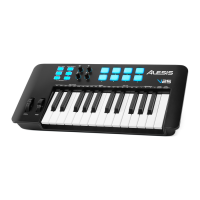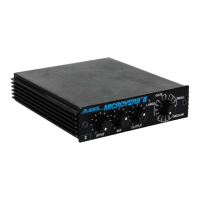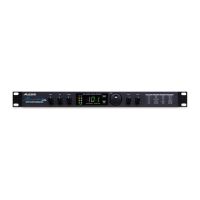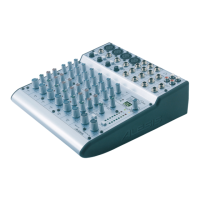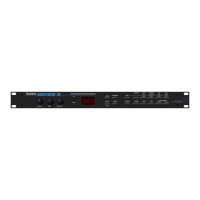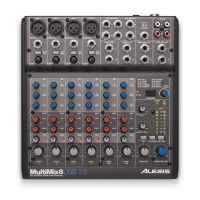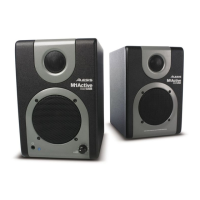Chapter 5
ALESIS ML-9600 REFERENCE MANUAL 33
Figure 5.4.5
Render DSP Page
Pressing the DOWN/NO button in this page will have no effect. Pressing the UP/YES button will
prompt you with an "Are you sure? Y/N" message. Pressing DOWN/NO will cancel the DSP
Render operation. Pressing UP/YES in this screen will render all DSP parameters (Track Gain,
Compression parameters, EQ parameters, Limiter parameters, Normalizer parameters, and Track Fade
parameters) to the destination track.
APPLICATION NOTE: It is sometimes necessary to apply DSP to a specific region of a recording,
without interrupting the flow of audio. Below are listed the steps to accomplish DSP rendering of an
audio region:
1. Select the Playlist and Track you wish to work on.
2. Determine the start of the region to which you wish to apply DSP.
3. Split the original Track at the start of the region (Section 4.9). You will now have two Tracks in
place of the original one.
4. Select the second track and determine the end of the region to which you wish to apply DSP.
5. Split the Track at the end of the region. You will now have three tracks.
6. Select the second track again (this should now be only the region of interest), and apply Track DSP
as needed.
7. Render the DSP to the second Track (Section 5.4h).
8. Join Tracks 3 to 2, and then Tracks 2 to 1 (Section 4.10). You will now have one continuous track
with the DSP changes applied to the appropriate region.
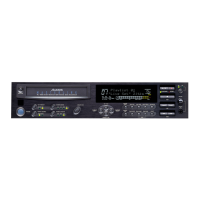
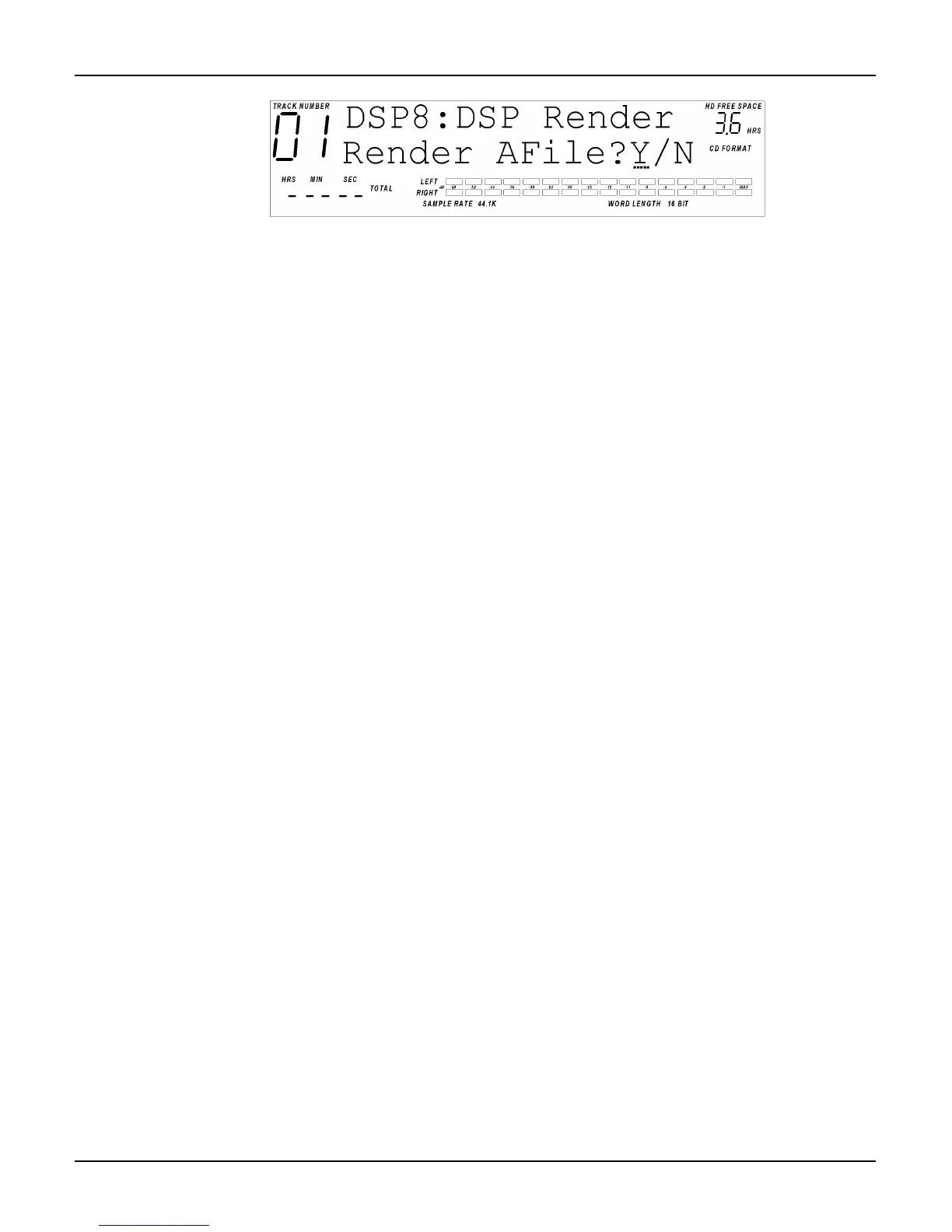